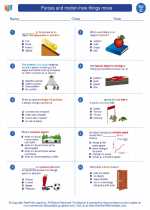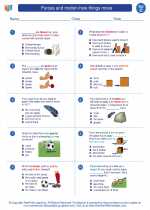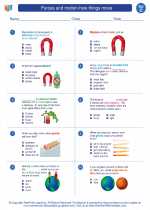Large Intestine
The large intestine, also known as the colon, is the final part of the digestive system. It is responsible for absorbing water and electrolytes from undigested food matter and forming feces. The large intestine also houses a large population of beneficial bacteria that help in the fermentation of undigested carbohydrates and the production of certain vitamins like vitamin K and some B vitamins.
Anatomy of the Large Intestine
The large intestine is divided into several parts including the cecum, ascending colon, transverse colon, descending colon, sigmoid colon, and the rectum. The colon is also divided into four parts: the ascending colon, transverse colon, descending colon, and sigmoid colon. The large intestine ends at the rectum, where feces are stored before being eliminated through the anus.
Functions of the Large Intestine
The main functions of the large intestine include:
- Water Absorption: The large intestine absorbs water and electrolytes from the undigested food material, helping in the formation of solid feces.
- Production of Vitamins: Beneficial bacteria in the large intestine help in the production of certain vitamins, particularly vitamin K and some B vitamins.
- Fermentation: The large intestine is involved in the fermentation of undigested carbohydrates, producing short-chain fatty acids that can be used as an energy source.
- Storage and Elimination: The large intestine stores feces until they are ready to be eliminated through the anus.
Study Guide
To study the large intestine, it's important to understand its anatomy, functions, and the processes that occur within it. Here are some key points to focus on:
- Identify and label the parts of the large intestine, including the cecum, ascending colon, transverse colon, descending colon, sigmoid colon, and rectum.
- Understand the functions of the large intestine, particularly its role in water absorption, vitamin production, fermentation, and feces storage and elimination.
- Explain the importance of beneficial bacteria in the large intestine and their role in the production of vitamins and the fermentation process.
- Describe the process of feces formation and elimination, including the movement of fecal matter through the large intestine and the role of the rectum and anus.
- Discuss the potential health issues related to the large intestine, such as constipation, diarrhea, and inflammatory bowel diseases.
Understanding the large intestine is essential for comprehending the final stages of the digestive process and the role it plays in maintaining overall digestive health.
[Large Intestine] Related Worksheets and Study Guides:
.◂Science Worksheets and Study Guides Third Grade. Forces and motion-how things move

 Worksheet/Answer key
Worksheet/Answer key
 Worksheet/Answer key
Worksheet/Answer key
 Worksheet/Answer key
Worksheet/Answer key
 Vocabulary/Answer key
Vocabulary/Answer key
 Vocabulary/Answer key
Vocabulary/Answer key
